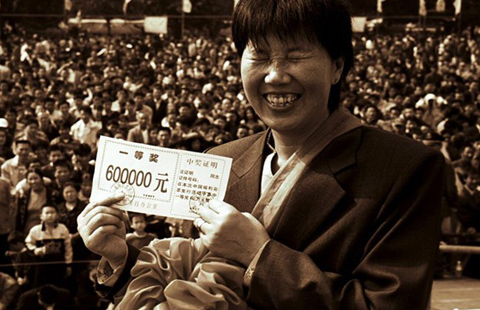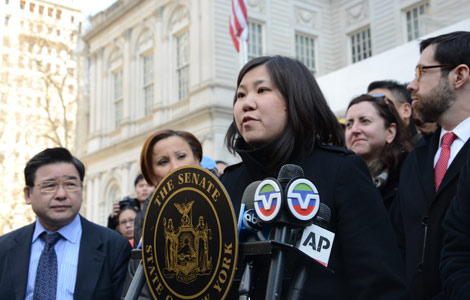A willful leader can abuse power at will
Updated: 2015-03-17 07:59
(China Daily)
|
||||||||
 |
|
Qiu He, deputy head of the Yunnan Provincial Committee of the Communist Party of China, is investigated. [Photo/IC] |
The fall of a deputy Party chief of Southwest China's Yunnan province has been described by some as the end of the willfulness of power.
It is not yet known for what specific problems Qiu He has been placed under investigation immediately after the conclusion of the annual session of the National People's Congress on Sunday. But it is thought to be because of his power abuse for personal gains.
Qiu as a local leader was not only headstrong, he showed a firm hand in carrying out his urban renovation plans wherever he worked as top leader. He has long been a controversial figure for wielding his power to auction local State-owned hospitals, sell local schools, coerce government officials into soliciting investment for local development, and expand local urban renovation at will.
Typically, Qiu has demonstrated how far a local leader can go in wielding his power at his own will for whatever purpose without proper supervision.
The way he imposed on local officials the task of soliciting investment for the local economy and forced the implementation of his urban renovation plan without taking into consideration the ecological and cultural consequences show the power he grasped knew no bounds.
The local legislators, who are supposed to exercise the power to review his decisions and veto his plans if they find them unlawful, and the Party's collective decision-making procedure, which should have stopped him from doing whatever he wanted, have both proved ineffective as restrictions against Qiu wielding his power.
What is absurd is the popularity he has won among some local residents as a capable leader, since his high-handedness and headstrong determination in having his policies implemented swiftly have often been in stark contrast to the rampant red tapes and bureaucracy in local governments.
It is possible that some residents may have benefited from his urban renovations. And many lazy and sloppy local officials may have felt uncomfortable in getting their work done as swiftly as possible under his leadership. But it is all because of his too strong will rather than effective institutional arrangements.
It is way too obvious that there has been little to effectively check the power in his grip. The same is true with almost all local top leaders. So the question we should ask is not how headstrong Qiu has been but how willful power can be when it is without any institutional constraints.
His downfall by no means marks the end of the willfulness of power. Instead it should serve as a warning about the urgent need to place power within the cage of laws.

 The CeBIT trade fair opens in Germany
The CeBIT trade fair opens in Germany
 Now and then: Lottery dream fading
Now and then: Lottery dream fading
 Braving the snow for greener pastures
Braving the snow for greener pastures
 Special: Preserve the past to live the future
Special: Preserve the past to live the future
 Bruce Lee's legacy promotes Kungfu in LatAm
Bruce Lee's legacy promotes Kungfu in LatAm
 Germany's Black Forest: a popular holiday destination
Germany's Black Forest: a popular holiday destination
 Push for Lunar New Year school holiday
Push for Lunar New Year school holiday
 Sea of color at Shenzhen race
Sea of color at Shenzhen race
Most Viewed
Editor's Picks

|

|

|

|

|

|
Today's Top News
Mutual respect, interests key to US relations
US targets vocational schools in visa crackdown
Washington pitched to tourist
China, Myanmar investigate deadly bombing in Yunnan: FM
Foreign investment restrictions
to be cut
Taking the fight to the terrorists
Action to be taken if deadly bombing happens again
New bureau set to boost graft fight
US Weekly

|

|








